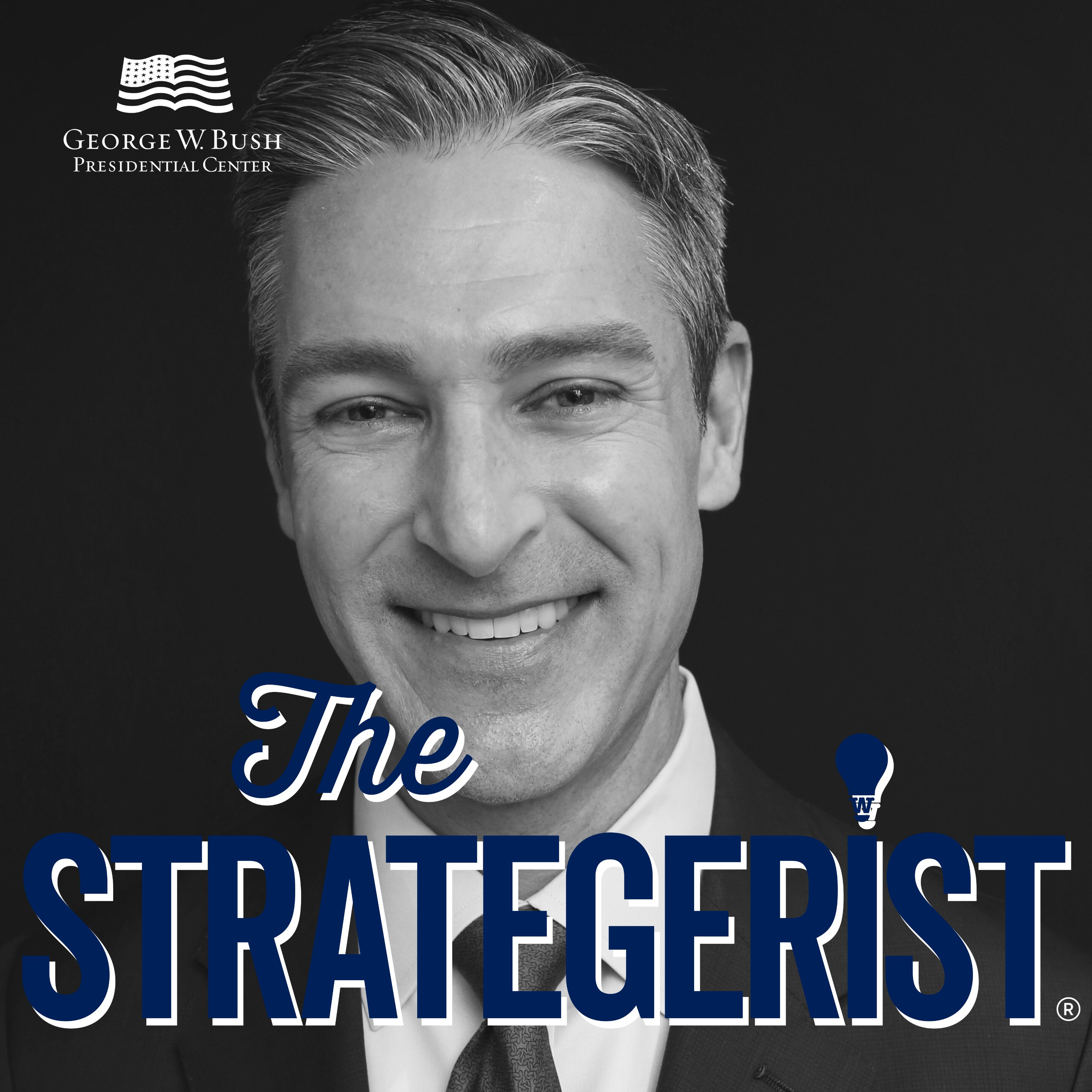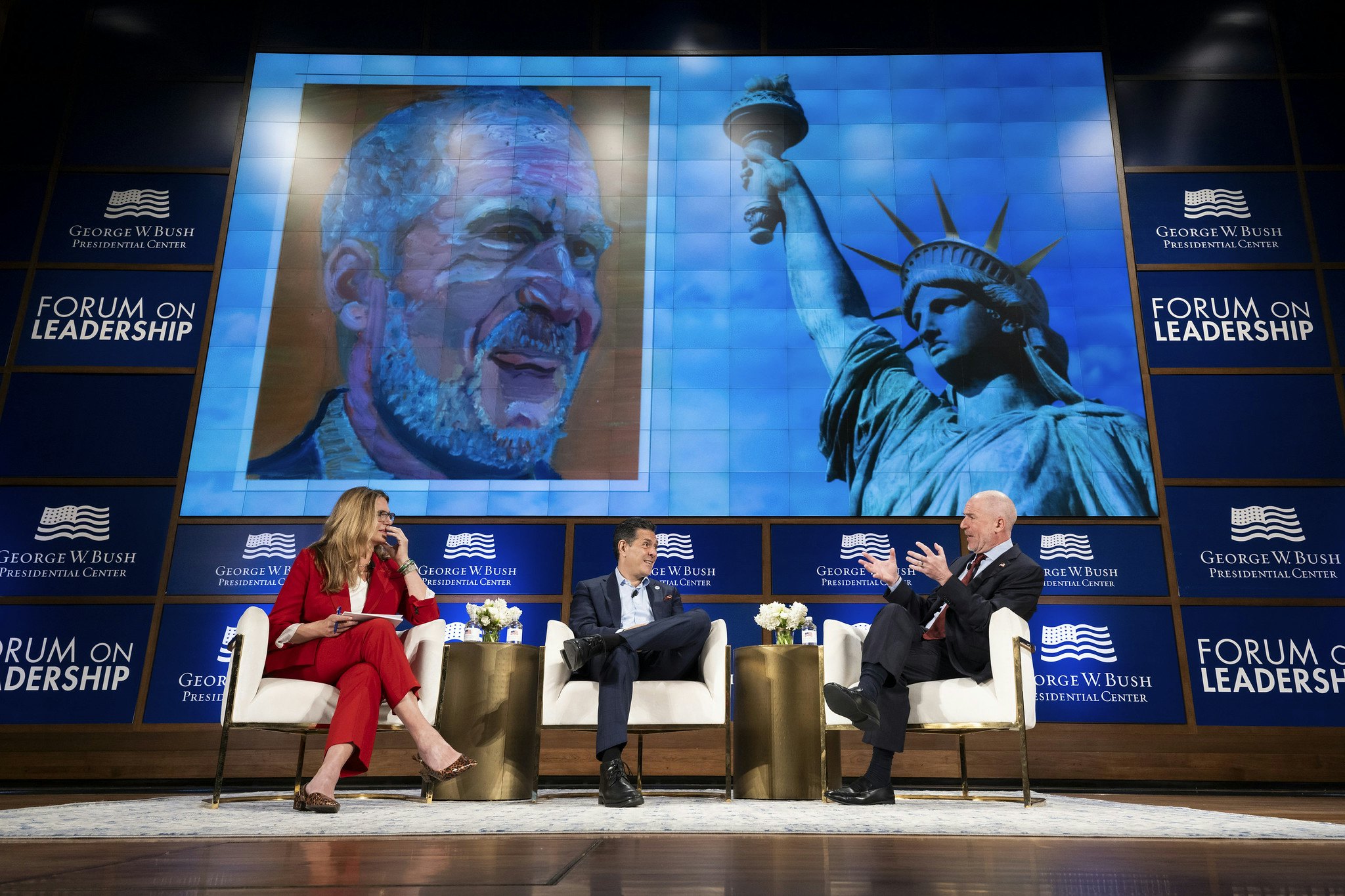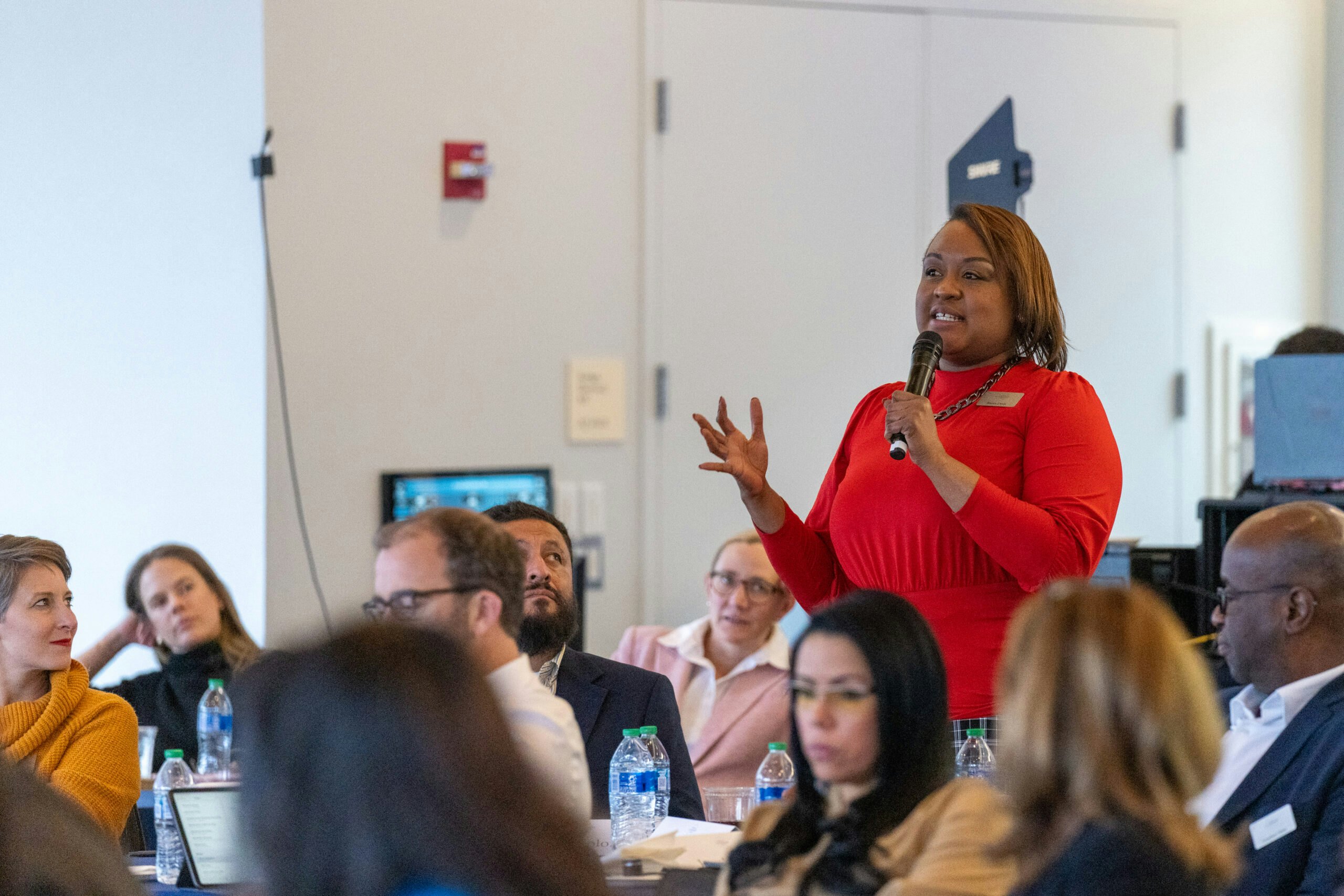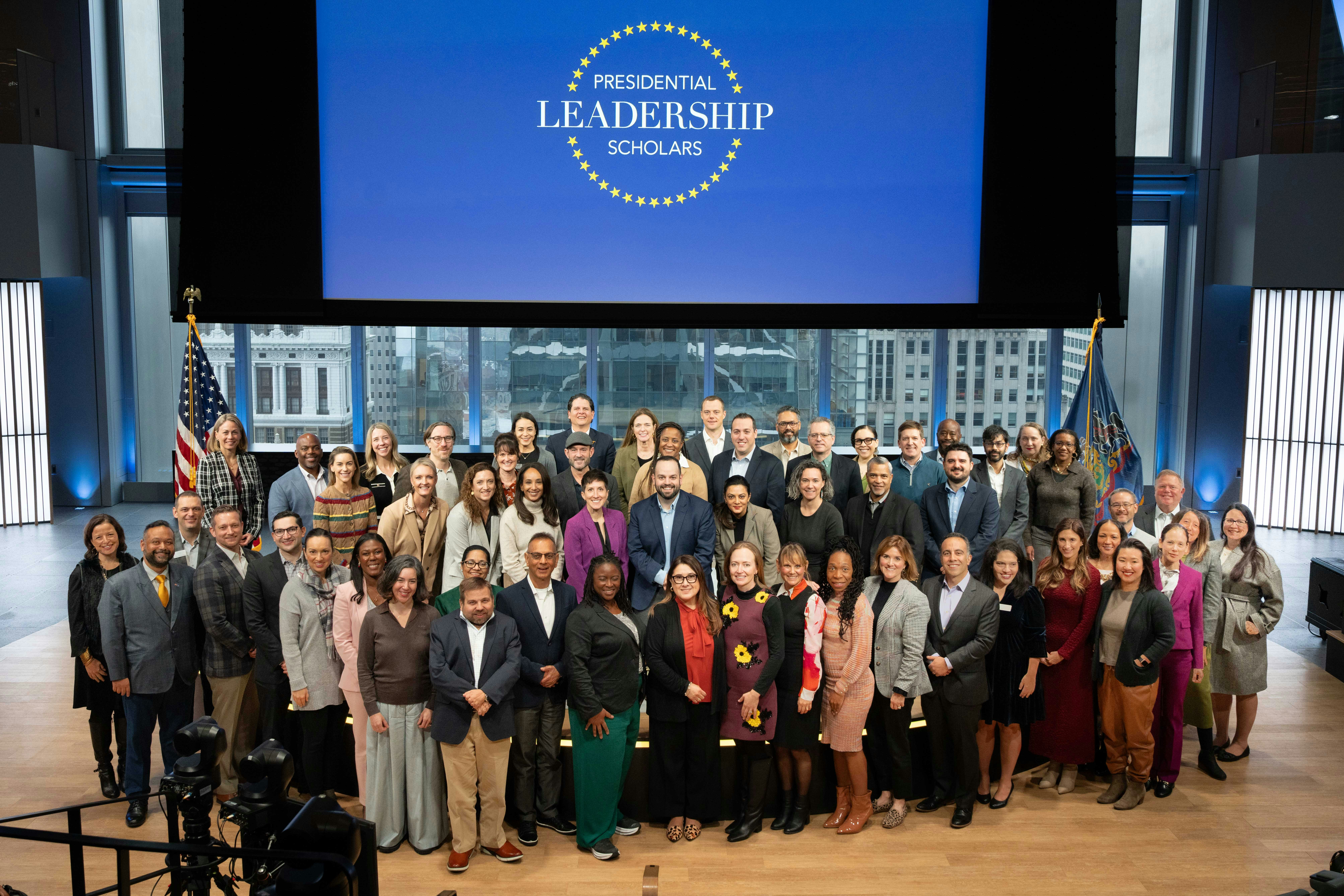The George W. Bush Institute’s Chris Walsh, Director of Global Policy, and Jason Galui, Director of Veterans and Military Families, discuss the Prosper Exchange – an initiative Galui helped spearhead to bring his community together to engage in civil conversations. Read the full transcript below.
Chris Walsh: What is the Prosper Exchange? Why did you create it, and how did you do it?
Jason Galui: Yeah, well, so Prosper, Texas, my hometown, my adopted hometown, post-Army. We moved here in the summer of ’20, after retiring from the Army, in the midst of all that was going on in 2020, right? We certainly knew it was a transition for our family years before. Didn’t know it was going to be a transition for the entire world, our country.
And so hearing the rhetoric when we got here, of course, the rhetoric around the 2020 campaign on both sides, and then, really, I’d say, with much greater passion than I had anticipated, hearing the rhetoric here in North Texas – so I say all of us, my family and I – kind of caught us off-guard. And it just so happened that the first person that I had coffee with here in Prosper, Texas, was a gentleman named David Bristol…. I had met him virtually about six months prior, at a webinar that I had done. Mentioned to him … I was coming to Prosper, and he said he lived there, and we should get together for coffee. We had coffee at a small coffee shop.
We connected for a variety of reasons, the primary one, perhaps, because we were both veterans. He graduated from the Air Force Academy; I graduated from West Point. So we immediately had this bond, and we started thinking about and sharing, commiserating, perhaps, around the state of our country. And we said, “We got to do something about this. We can’t just sit back. Though our military service is over, our service to country continues.” And, in that conversation, David went on to tell me that he was going to run for mayor of Prosper, which was fun, because I’d never been around small-town politics. It was interesting to hear that.
So we started talking, so this just started a series of conversation that he and I would have, about, “What do we do?”
This is a series on pluralism, so I’ll give you my one-word definition of it. I’d say more of a textbook definition, and to think about it abstractly and concretely in the same flight of thought, I’d say it’s a system in which democratic values are preserved, whether you have multiple competing groups compromising and bargaining over rules of the game, over policy. And I’ll come back in our conversation about this compromising and bargaining, because that’s what we were after.
We heard, on both sides, Republican and Democrat, this unwillingness to compromise, which we said is, at the root, anti-American. You can’t not compromise, and so we said, “How do we get people together?” And I remember a line I said to David. I said, “Prosper, Texas: 28,0000 people here” at the time. Now we’re at 38,000, so a lot of growth in Prosper. And I said, “My assumption is these 28,000 people, of which we are two, if we all chose to live in Prosper, Texas, for whatever reason, I would assume that we have more in common with one another than not. So we should be able to have real conversations around the most challenging issues in our country in Prosper. If we can’t do it here in this house, 28,000, then perhaps the American experiment is doomed.”
And so we challenged each other and said, “Let’s find out. Let’s get right to it.” It’s … sort of the genesis of the Prosper Exchange. What it is, of course, as two military officers, we set up to say, “Why we’re doing this? What is the purpose? What are our objectives?”
And David, so then he becomes mayor, and then he was able to then gather a steering committee, a pretty good cross section from our town of residents. Some who are relatively new; some have been here for a long time, different parts across our 27 square-mile town. And we got to this idea of the purpose being to promote civic participation through honest dialogue and civil discourse around our country’s most challenging issues. And I was pretty vocal at the beginning. I said, “I want to do gun control. I want to do abortion. I want to do immigration.” I said, “Let’s figure out this American experiment, if it will survive or not, right away.”
And so that was really, I would say, most of ’21 and ’22. After going through a range of ideas, we landed on the Prosper Exchange, which we launched in January of ’23.
Chris Walsh: How do you convince participants in The Prosper Exchange that when they participate, it is an exchange? It’s not about being told what to think or how to think or being made to feel like they have to compromise or be afraid that something that they believed could be challenged. How do you convince them to participate?
Jason Galui: So it’s an ongoing challenge, and I’ll come back to it. We’ve had three Prosper Exchanges. We have one on the horizon here on February 15th, and our communication to folks is the Prosper Exchange is not a forum at which to debate policy. We’re not there to change policy preferences of anybody. It’s really designed to share with people how things really work, to go beyond the soundbites or the headlines, wherever they get their information, and to bring in people who are truly expert in their fields.
For example, we started with immigration, so we did compromise on the steering committee, by the way. So we started with immigration, and we decided then to fluctuate between national and global issues and more local issues. So our first two topics, we did immigration, which certainly has national-level implications, and then the second topic was taxation locally. But in each of those conversations, we brought people who had lifelong careers in the subject and could speak with authority and credentials in a way that the residents, regardless of where the resident was on the political spectrum or their own beliefs, were able to walk away saying, “Huh, I didn’t realize the situation was that complex,” or, “I didn’t know that about asylum. I didn’t know that about the taxation process.”
And so it’s really about how things work, which I think is a way to get back at the purpose of the Prosper Exchange, which is to promote civic engagement and participation. For me, the long-term goal of the Prosper Exchange is to have relatively well-informed citizens who could ask real questions of people seeking public office and hold those office seekers to account for their response and not get away with just the party talking points or the criticism of whoever the incumbent is.
So we want real conversations. We want real answers. These are real issues. Millions of lives in our country, billions of lives around the world, are affected by policy decisions, so we should have real conversations about them.
Chris Walsh: Now, you recently wrote for the Bush Institute’s online journal, The Catalyst, about the Prosper Exchange. The issue itself was about the state of American democracy, and you chose to share this, what you’re doing locally in Prosper, Texas. You co-wrote this with Mayor Bristol, as well, so it was both of you writing together.
But when you open, you talk about your military, both of you as veterans, your military service, and your career. Will you talk a little bit about how you see the Prosper Exchange continuing your sense of service to the country and why service matters in a thriving democracy?
Jason Galui: Yeah, in a thriving democracy, a thriving, healthy, representative democracy that we all hope to be a part of, there are certain civic and citizen responsibilities and – I would argue – obligations that we have. And, certainly, military service, service to country: defend, be prepared to fight and win America’s wars around the world, defend the freedom of the United States. I don’t think when we leave service and we exchange our uniform for these disguises of civilian clothes, that our service to country changes. In fact, it’s perhaps more important.
I found myself in these conversations with Mayor Bristol and others, quickly coming to this realization, post-Army, that my service to country, out of uniform, was going to be just as important, if not more, but certainly harder than when I was in uniform. And so I think in order to make this representative democracy work, this government of the people, by the people, for the people, this experiment, it takes all of us playing various roles with great honesty and integrity to enable our pursuits of happiness.
And I just saw that the Prosper Exchange, a place where I think, given our military service, we have seen what America’s adversaries seek to do to the American way of life. There are real threats against our way of life, and for me, personally. I won’t speak for Mayor Bristol, but I suspect he’s not too different than me on this. To watch fellow Americans look at each other, refer to one another as enemies of the state or enemies of one another, or this side is deliberately seeking to undermine America, I refuse to believe that, because I know that there are real states and nonstate actors seeking to do exactly that.
So to bring that back to a place like Prosper, to North Texas, to Texas, and to show, “Hey, Americans, we’re all on the same side.” I think we all agree on the same ends. The ways and means to get to those ends might differ, and that’s when we should disagree. We should disagree and disagree better, by the way.
Find out how your community can try out its own version of Prosper Exchange in the latest installment of The Catalyst: A Journal of Ideas from the Bush Institute.





























